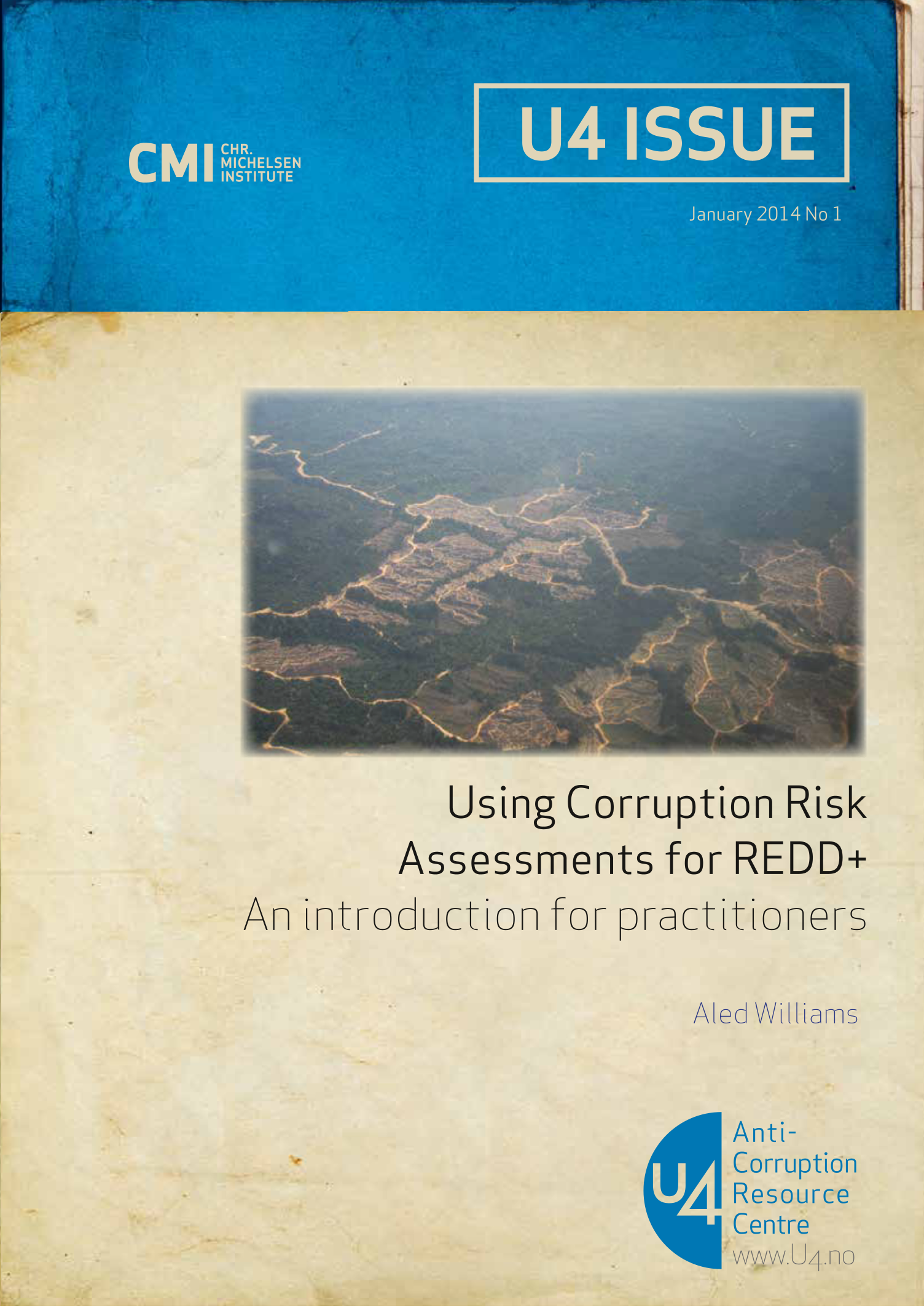U4 Issue
Using corruption risk assessments for REDD+: An introduction for practitioners
Corruption Risk Assessments (CRAs) are both an analytic and due diligence exercise to identify issues associated with, contributing to, or otherwise facilitating corruption in a particular setting. An area where improved understanding of corruption risks, and the adaptation of development aid interventions to take them into account, is seen to be of crucial importance is in the implementation of programmes for Reducing Emissions from Deforestation and Forest Degradation (REDD+). This U4 Issue considers two recent approaches to corruption risk assessment for REDD+ in the Democratic Republic of Congo and the Philippines. The intention is to provide development practitioners who may be unfamiliar with the study of corruption, or with the methods employed by CRAs, an overview of the approaches currently available for REDD+ schemes. Referring to recent literature on the evidence for the effectiveness of donor anti-corruption approaches, some practical considerations for development practitioners to improve the way in which CRAs are used are discussed.

Cite this publication
Williams, A. (2014) Using corruption risk assessments for REDD+: An introduction for practitioners. Bergen: Chr. Michelsen Institute (U4 Issue 2014:1) 22 p.
Disclaimer
All views in this text are the author(s)’, and may differ from the U4 partner agencies’ policies.
This work is licenced under a Creative Commons Attribution-NonCommercial-NoDerivatives 4.0 International licence (CC BY-NC-ND 4.0)


